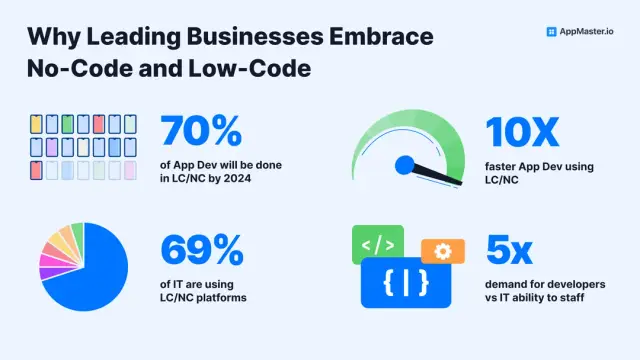The Impact of AI on Custom CRM Systems
Discover how artificial intelligence (AI) transforms custom CRM systems, enhancing customer interactions, and improving business productivity.

Introduction to AI in Custom CRM Systems
Today businesses are constantly searching for ways to improve customer engagement experiences and consolidate their internal processes. Customer Relationship Management (CRM) systems have long been essential tools in the business sphere, as they help companies to manage customer interactions and drive sales. However, as technology evolves and customer demands increase, it becomes essential to leverage innovative solutions that can revolutionize the world of CRM systems.
Artificial intelligence (AI) has the potential to greatly impact custom CRM systems, driving improved customer interactions, better decision-making, and increased productivity across various industries. With AI-powered enhancements, CRM systems can offer businesses the ability to better understand their customers, foster more personalized experiences, improve efficiency, and ultimately gain an edge over competitors.
By incorporating AI capabilities into custom CRM systems, companies are not only able to optimize their customer interactions but also streamline various aspects of their business processes, driving growth and success in an increasingly competitive marketplace.
Key AI-Powered Features in Custom CRM Systems
Artificial intelligence can be integrated into custom CRM systems in various ways, offering powerful features that can greatly enhance their capabilities. Here are some of the key AI-powered features implemented in custom CRM systems:
- Natural Language Processing (NLP): NLP enables CRM systems to understand and analyze human language, facilitating communication with customers and providing insights into their needs and preferences. NLP technology can help businesses identify important trends, patterns, or sentiments in customer interactions, ultimately driving improved customer experiences.
- Machine Learning: Machine learning algorithms enable CRM systems to analyze and learn from data, allowing them to automatically adapt and make more informed decisions. This can be utilized in various ways, such as identifying customer preferences, predicting customer behavior, or offering personalized product recommendations.
- Predictive Analytics: By integrating machine learning algorithms into CRM systems, businesses can harness the power of predictive analytics to identify patterns and trends that help them make smarter, data-driven decisions. This can be applied to various aspects of the business, such as optimizing marketing campaigns, improving upselling opportunities, or predicting customer churn.
- Chatbots and Virtual Assistants: AI-powered chatbots and virtual assistants can be integrated into CRM systems to provide prompt, efficient customer support and service. These tools not only help businesses reduce response times, but they also can handle routine customer inquiries, freeing up valuable time and resources for human staff members to focus on more complex tasks.
- Sentiment Analysis: By leveraging AI-powered sentiment analysis, CRM systems can better understand customer emotions and attitudes toward products, services, or brand experiences. This information can be invaluable to businesses, allowing them to more effectively tailor marketing strategies, product offerings, and communication efforts to better align with customer expectations and desires.
AI-Driven Personalization in Customer Interactions
One of the key benefits of artificial intelligence in custom CRM systems is its ability to drive personalization in customer interactions. AI-driven personalization uses machine learning algorithms to analyze customer data and preferences, enabling businesses to provide more tailored experiences that resonate with individual customers. This level of personalization can lead to improved customer satisfaction, loyalty, and ultimately increased revenue for businesses.
Here are some ways that AI can drive personalization in custom CRM systems:
- Targeted Marketing Campaigns: By leveraging AI-powered customer segmentation, businesses can develop targeted marketing campaigns that are tailored to specific customer demographics, behaviors, and preferences, making them more effective and likely to resonate with customers.
- Product Recommendations: AI algorithms can analyze customer purchase history, browsing patterns, and preferences to provide personalized product recommendations, increasing the likelihood of a customer making a purchase and driving up sales revenue.
- Dynamic Content: AI-driven CRM systems can help businesses create dynamic, personalized content that adapts in real-time based on user behavior. This can result in more engaging and relevant web content, email marketing, or even chatbot interactions.
- Optimized User Experience: By analyzing customer interactions, an AI-equipped CRM system can help businesses optimize their website or application's user experience, presenting tailored offers, product suggestions, and content based on individual customer profiles and behavior.
In summary, AI-powered custom CRM systems offer a unique opportunity for businesses to enhance their customer interactions, streamline processes, and ultimately drive growth and success. With AI-driven personalization, businesses can provide more engaging and relevant experiences that keep customers coming back for more. As the technology continues to evolve and improve, custom CRM systems can continue to leverage the power of AI to stay ahead in the competitive business environment.
Boosting Sales and Marketing Efforts with AI-Enabled CRM
Integrating artificial intelligence (AI) into custom customer relationship management (CRM) systems presents businesses with the opportunity to revamp their sales and marketing efforts, making them more efficient and effective. AI-powered CRM applications do so by automating various sales processes, predicting customer behavior patterns, and optimizing marketing campaigns for higher returns on investment (ROI). Here are some ways AI is changing the CRM industry when it comes to sales and marketing:
Automated Lead Scoring and Prioritization
One of the most impactful AI-driven features in a CRM is automated lead scoring, which prioritizes leads based on their perceived value and likelihood to convert. Using machine learning algorithms, an AI-enabled CRM system scans various factors, including demographic data, engagement history, and online behavior, to assign a lead score. This not only saves time but also ensures that sales representatives focus on high-quality prospects, improving overall conversion rates.
Data-Driven Behavior Insights
Understanding customer behavior patterns allows businesses to anticipate needs and concerns, ultimately leading to better customer engagement and retention rates. AI-enabled CRM systems mine vast amounts of data from email interactions, web analytics, and social media to uncover patterns that may indicate a customer's readiness to make a purchase or an opportunity to upsell a current customer. With access to these insights, businesses are better equipped to address the customers' needs more effectively.
Personalized Marketing Campaigns
Custom CRM systems augmented with AI capabilities help create personalized marketing campaigns tailored to each customer's preferences and needs. By analyzing various data points such as past purchases, browsing behavior, and communication preferences, AI-powered CRM systems can automatically tailor email campaigns, recommend products, and create targeted offers. This level of personalization ultimately improves customer engagement and increases the likelihood of successful conversions.

Sales Forecasting and Optimization
AI-assisted CRM systems can predict potential sales and revenue, helping businesses make informed decisions about setting sales targets, allocating resources, and devising new strategies. By analyzing historical data, current pipelines, and market trends, AI-driven CRM systems can generate accurate forecasts and identify factors that could impact sales performance. Consequently, businesses can take proactive steps to address potential challenges, allowing them to remain competitive and achieve their growth objectives.
Enhancing Sales Representative Performance
AI-powered CRM systems are not just beneficial for marketing campaigns but also support sales representatives in navigating complex deals. With AI-generated insights, sales reps can prioritize leads, understand customer preferences, predict objections, and offer personalized solutions. In turn, this leads to more confident sales interactions, which directly impact conversion rates and overall sales performance.
Improved Customer Support and Service through AI
AI-assisted CRM systems offer businesses the ability to cater to customer needs more effectively. By leveraging AI technologies such as natural language processing (NLP) and machine learning, CRM systems can automate routine tasks and handle customer queries more accurately. Here are some ways AI is improving customer support and service in custom CRM systems:
Chatbots and Virtual Assistants
Chatbots and virtual assistants, driven by AI technologies like NLP, enable CRM systems to handle customer requests quickly and efficiently. These automated tools manage routine, high-volume inquiries such as password recoveries, order status requests, and basic troubleshooting. By addressing these issues immediately, chatbots and virtual assistants reduce wait times for customers and free up support staff to focus on more complex cases.
Contextual and Personalized Support
AI-enabled CRM systems incorporate machine learning algorithms to understand a customer's history, preferences, and needs. This wealth of data allows the CRM system to deliver contextual and personalized support, which enhances the quality of interactions and increases the chances of resolving issues satisfactorily. As a result, businesses can provide seamless support experiences while fostering customer loyalty and trust.
Predictive Maintenance and Support
AI-powered CRM systems can anticipate technical issues before they escalate into critical problems by analyzing historical support data and identifying common trends. With this information, businesses can take preventive measures, such as proactively contacting customers about potential issues or providing software updates. This ability to predict and address problems before they occur significantly enhances the customer experience and reduces support costs.
Sentiment Analysis in Customer Communication
Understanding and addressing customers' emotions in real-time can have a significant impact on their satisfaction levels. AI-enabled CRM systems use sentiment analysis, a natural language processing technique, to gauge customer emotions based on their text or voice communication. Flagging upset customers and offering personalized support can help businesses mitigate the situation, keeping customers happy and minimizing potential negative consequences.
AI and Data Analytics for Business Insights
AI-powered CRM systems offer businesses unparalleled opportunities to glean valuable insights from the vast amounts of data at their disposal. By analyzing, interpreting, and extrapolating patterns and trends from customer and sales data, AI-enabled CRMs help businesses make informed decisions and drive growth. Here are some of the core ways AI-driven CRM systems assist in data analytics and generating insights:
Uncovering Hidden Opportunities
AI-driven CRM systems can identify opportunities that may have gone unnoticed by human analysts, such as specific customer segments that respond to particular marketing campaigns or niches with high potential for product expansion. By leveraging machine learning algorithms, businesses can uncover trends and patterns buried in data, revealing areas for growth and improvement.
Analytics-driven Strategy Optimizations
Armed with AI-generated insights, businesses can optimize their sales, marketing, and customer support strategies more effectively. For example, AI-powered CRM systems can identify revenue trends derived from various sales channels, enabling businesses to make targeted investments and allocate resources efficiently. Similarly, analyzing marketing campaign performance helps businesses optimize their campaigns by identifying areas with the highest ROI.
Streamlining Internal Processes
AI-assisted CRM systems not only help analyze customer and sales data but also provide insights into internal processes such as team performance, sales productivity, and support ticket resolution rates. These data-driven analyses help businesses pinpoint areas for improvement and implement changes as required, ultimately leading to more efficient workflows and higher team productivity.
Risk Assessment Analysis
Understanding potential risks and their implications can significantly impact business decision-making. AI-powered CRM systems can analyze historical trends, economic indicators, and market shifts to assess potential risks and their projected consequences. Predictive risk analysis enables businesses to better prepare for unfavorable outcomes, ensuring they have adequate contingency plans in place to prevent or mitigate potential negative effects.
In conclusion, AI is revolutionizing custom CRM systems by offering a host of powerful features that significantly improve sales and marketing efforts, enhance customer support, and provide valuable data-driven insights. The integration of AI technologies into CRM systems ensures businesses can deliver a more personalized customer experience, make informed decisions, and pursue growth opportunities with confidence.
Importance of No-Code Platforms like AppMaster in Developing Custom CRM Systems with AI
Developing a custom CRM system with AI capabilities might seem intimidating, especially for those with limited technical resources and time. To address this challenge, no-code platforms like AppMaster have revolutionized the development process, making it possible for users without programming knowledge to create powerful, AI-driven CRM systems with ease.
No-code platforms offer several key benefits that make them highly suitable for developing custom CRM systems with AI:
- Accessibility: No-code platforms provide an intuitive, drag-and-drop interface that simplifies the development process, enabling users with diverse backgrounds to create and maintain their CRM systems. This inclusive approach democratizes the software development process, opening up new possibilities for businesses of all sizes to realize the full potential of AI-driven CRM systems.
- Time and cost efficiency: Traditional CRM system development may involve lengthy timelines and high costs, which can be a barrier for small and medium-sized businesses. No-code platforms significantly accelerate the development process, allowing businesses to launch their custom CRM systems with AI capabilities faster and more affordably.
- Customizability and flexibility: No-code platforms allow users to tailor their CRM systems to their unique business needs, integrating AI-powered features and functionalities that are most relevant to their target audience. This empowers businesses to create CRM systems that not only enhance customer engagement but also deliver tangible improvements in sales, marketing, and customer support performance.
- Scalability: No-code platforms, like AppMaster, are designed to cater to various business use cases, ranging from small businesses to large enterprises. This means that growing businesses can scale up their custom CRM systems seamlessly, without the need to revamp their entire technology stack.

AppMaster, a powerful no-code platform, offers an innovative solution for businesses looking to implement custom CRM systems with AI functionalities. AppMaster enables users to create backend, web, and mobile applications through its visual BP Designer, REST API, and WSS Endpoints. With its drag-and-drop interface, users can easily build the UI and business logic components, accelerating the development process while also ensuring flexibility and scalability in the final CRM system.
Challenges and Opportunities in AI-Integrated Custom CRM Systems
While AI-powered custom CRM systems offer numerous advantages, it's essential to consider the challenges and opportunities that come with integrating AI technologies into your CRM system:
Challenges
- Data privacy and security: AI-driven CRM systems rely heavily on customer data, raising concerns about data privacy, security, and compliance. Businesses must implement data protection measures and comply with data protection regulations to maintain customer trust and avoid potential legal issues.
- Implementation costs: The initial cost of implementing AI technologies can be high, particularly for small and medium-sized businesses. However, no-code platforms like AppMaster offer cost-effective solutions that help businesses overcome this challenge.
- Staff training: Introducing AI-powered features into your CRM system might entail training your staff to utilize these new functionalities effectively. Providing adequate training, support, and resources can ensure a smooth transition and maximize the benefits of AI-driven CRM systems.
Opportunities
- Improved customer engagement: AI technologies offer businesses the opportunity to analyze customer preferences, predict future trends, and customize their outreach accordingly, resulting in enhanced customer engagement and satisfaction.
- Optimized strategies: Data-driven insights provided by AI technologies allow businesses to make better-informed decisions, optimize marketing and sales strategies, and ultimately, drive business growth.
- Increased productivity: AI-powered CRM systems automate repetitive tasks and streamline processes, enabling teams to focus on higher-value tasks and improving overall productivity.
Conclusion: The Future of Custom CRM Systems Driven by AI
The integration of artificial intelligence into custom CRM systems is undoubtedly a game-changer for businesses, providing valuable opportunities to enhance customer engagement, optimize strategies, and increase productivity. As AI-powered features advance, we can expect CRM systems to become even more personalized and effective, improving the overall customer experience.
Moreover, no-code platforms like AppMaster are playing a significant role in democratizing the process of building AI-driven CRM systems, providing businesses of all sizes with accessible and cost-effective means to leverage the power of AI in their CRM systems. With no-code development platforms becoming more advanced and refined, companies can expect to see increasingly sophisticated CRM systems custom-made to fit their unique business needs.
As a business considering the adoption of AI technologies, it's essential to weigh both the challenges and opportunities associated with AI-integrated CRM systems carefully. Ensuring data privacy and security, keeping implementation costs in check, and investing in staff training will empower your business to realize the full potential of a custom CRM system driven by AI.
FAQ
Artificial intelligence (AI) is transforming custom CRM systems by introducing advanced features that improve customer interactions, provide data-driven insights, enhance personalization, streamline sales and marketing processes, automate customer support, and more.
Main AI-powered features in custom CRM systems include natural language processing (NLP), machine learning, predictive analytics, chatbots, and sentiment analysis.
AI-driven personalization uses machine learning algorithms to analyze customer data and preferences, enabling businesses to deliver relevant content, product recommendations, and offers tailored to individual customers, ultimately improving customer satisfaction and loyalty.
AI can enhance sales and marketing efforts by automating lead scoring, prioritizing high-quality prospects, providing insights into customer behavior, creating personalized outreach campaigns, and helping sales representatives navigate complex deals more effectively.
AI improves customer support and service by using chatbots and virtual assistants to handle routine inquiries and assist customers efficiently, reducing response times and providing accurate solutions.
AI facilitates data analytics by using machine learning algorithms to process, analyze, and interpret large volumes of customer data, uncovering patterns and trends that help businesses make informed decisions and optimize their strategies.
No-code platforms like AppMaster enable users to create custom CRM systems with AI functionalities without the need for programming skills, significantly speeding up development and reducing costs, while also allowing users to adapt the CRM system to their unique business needs.
Challenges in AI-integrated custom CRM systems include data privacy and security concerns, implementation costs, and staff training. However, AI-equipped CRM systems provide numerous opportunities for businesses to improve customer engagement, optimize strategies, and increase productivity.
The future of custom CRM systems driven by AI is expected to include further advancements in AI-powered features, greater personalization, and the growing adoption of no-code development platforms that enable businesses to develop and implement sophisticated, customized CRM solutions.





